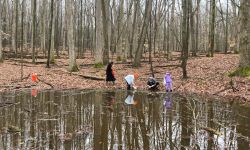Ice fishing as an Olympic sport? On a frozen Michigan lake, they dare to dream
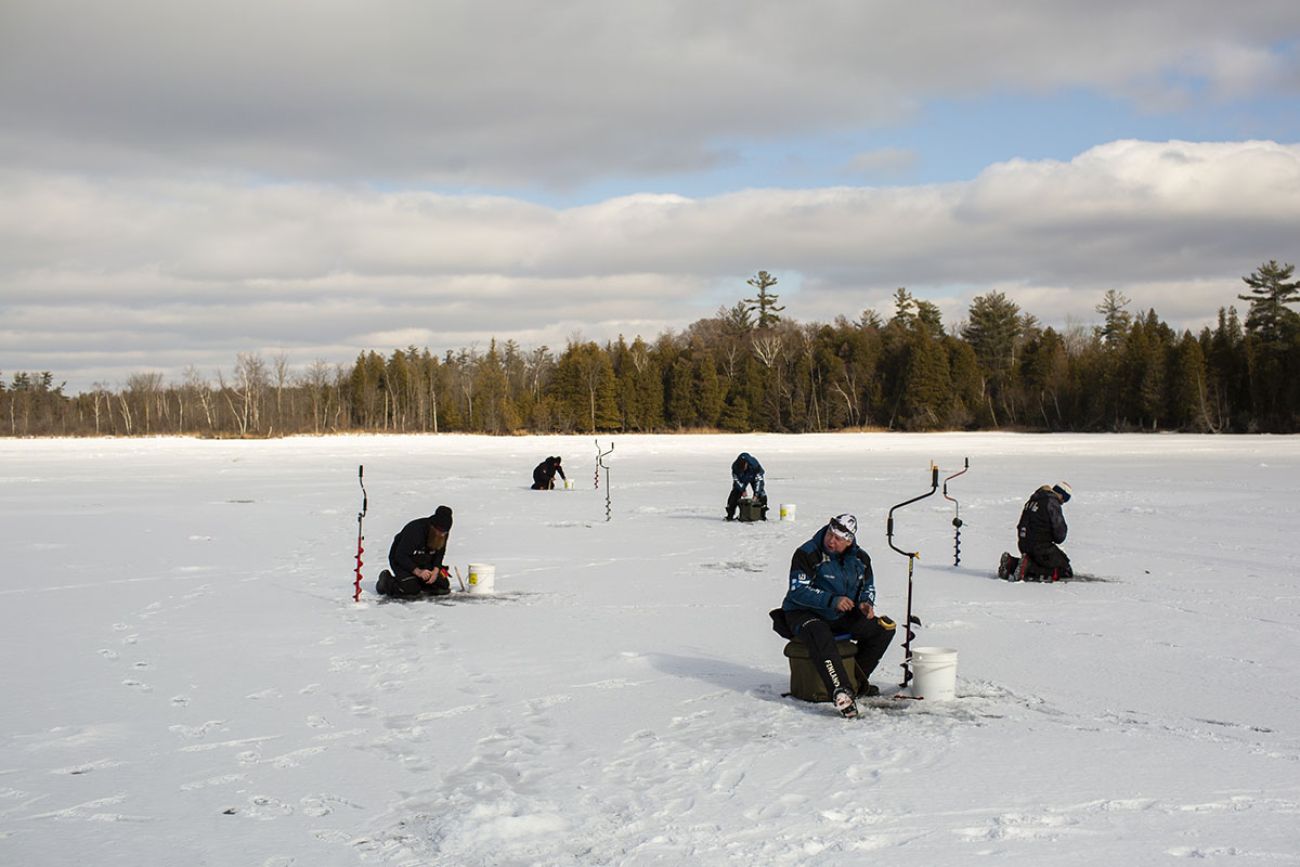
- Ice fishing is serious business this weekend at Tamarack Lake in west Michigan, where international teams are going for gold
- Organizers are switching to catch-and-release in hopes of becoming an Olympic sport
- This is first year event is in Michigan; three Team USA members are from the state
A host of languages fill the air as augers spin on a frozen lake outside Grand Rapids. Burly anglers dressed in layers crouch before small holes in the ice, teasing lines with palm rods about the size of an uncooked strand of spaghetti.
This is serious business. This is practice for this weekend’s World Ice Fishing Championship on Tamarack Lake in Lakeview.
Ten nations — Estonia, Finland, Kazakhstan, Latvia, Lithuania, Mongolia, Norway, Poland, Sweden and the United States — will compete for medals. It’s the first time Michigan has hosted the championship.
Yes, there will be beer.
If the scene doesn’t conjure images of Olympic athletes, it might one day.
For the first time, competitors are releasing their fish, mostly bluegill and crappie, after catching them. The hope is to persuade the International Olympic Committee to make ice fishing an Olympic sport.
Is it a longshot? Maybe. But breakdancing was in the 2024 Paris Olympics.
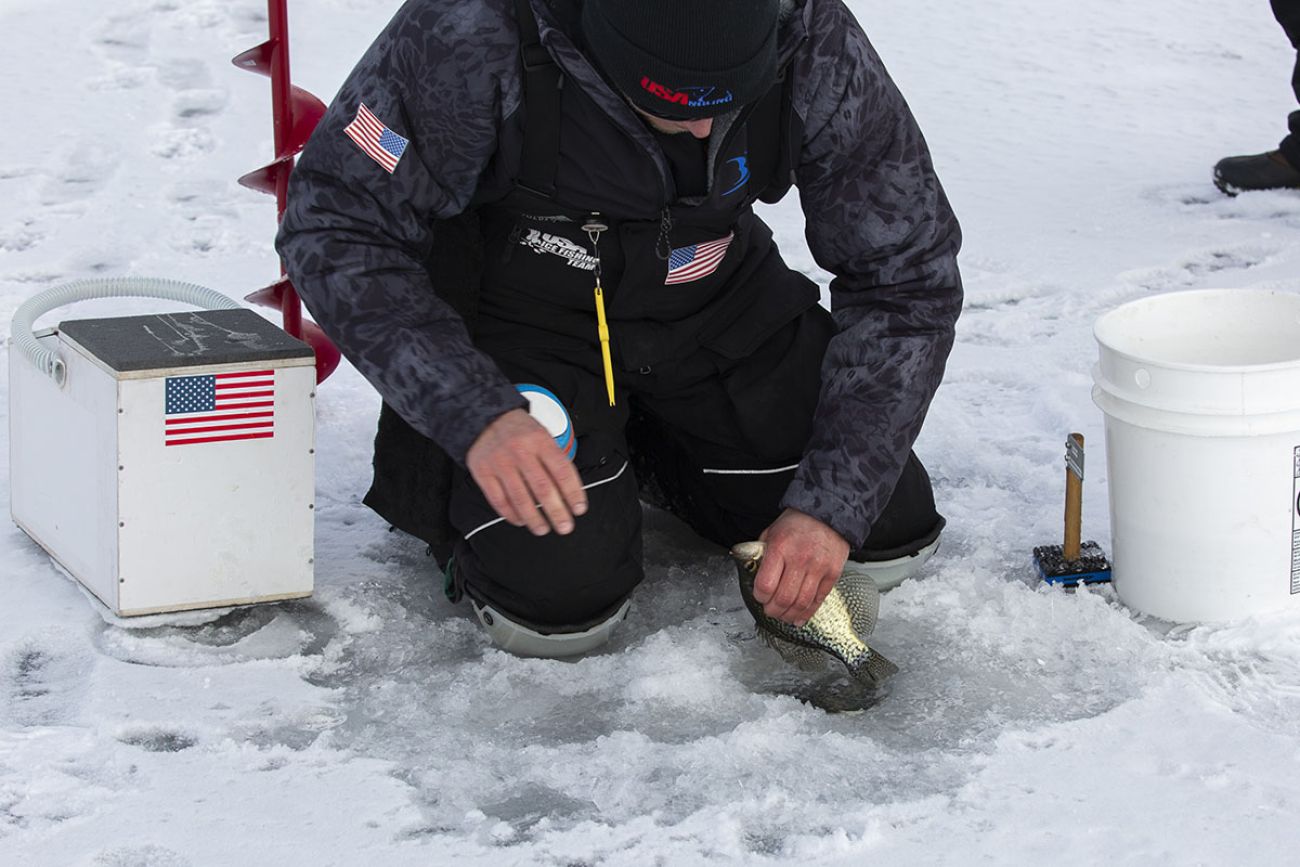
While there’s no evidence that catch-and-release will impress Olympic standardbearers, it’s a move toward sustainability and sometimes, “you have to be proactive and do things to convince people that you’re serious,” said Mike McNett, president of USAngling Freshwater, which is part of the International Sport Fishing Confederation (CIPS) that oversees the championship.
“These guys have all been competing against each other for years. They want the recognition. They want the top prize,” McNett said.
“Right now, CIPS organization is the top prize. It’s like the Olympics, but there’s a difference between that and actually being the Olympics.”
So earlier this week, competitors caught fish in a nearby lake as organizers worked out the kinks of the competition.
When they got a bite, anglers threw their tiny rod several feet in front of them and pulled up the line with their hands. Practice time like this, on or near the competition lake, can be crucial for international contestants.
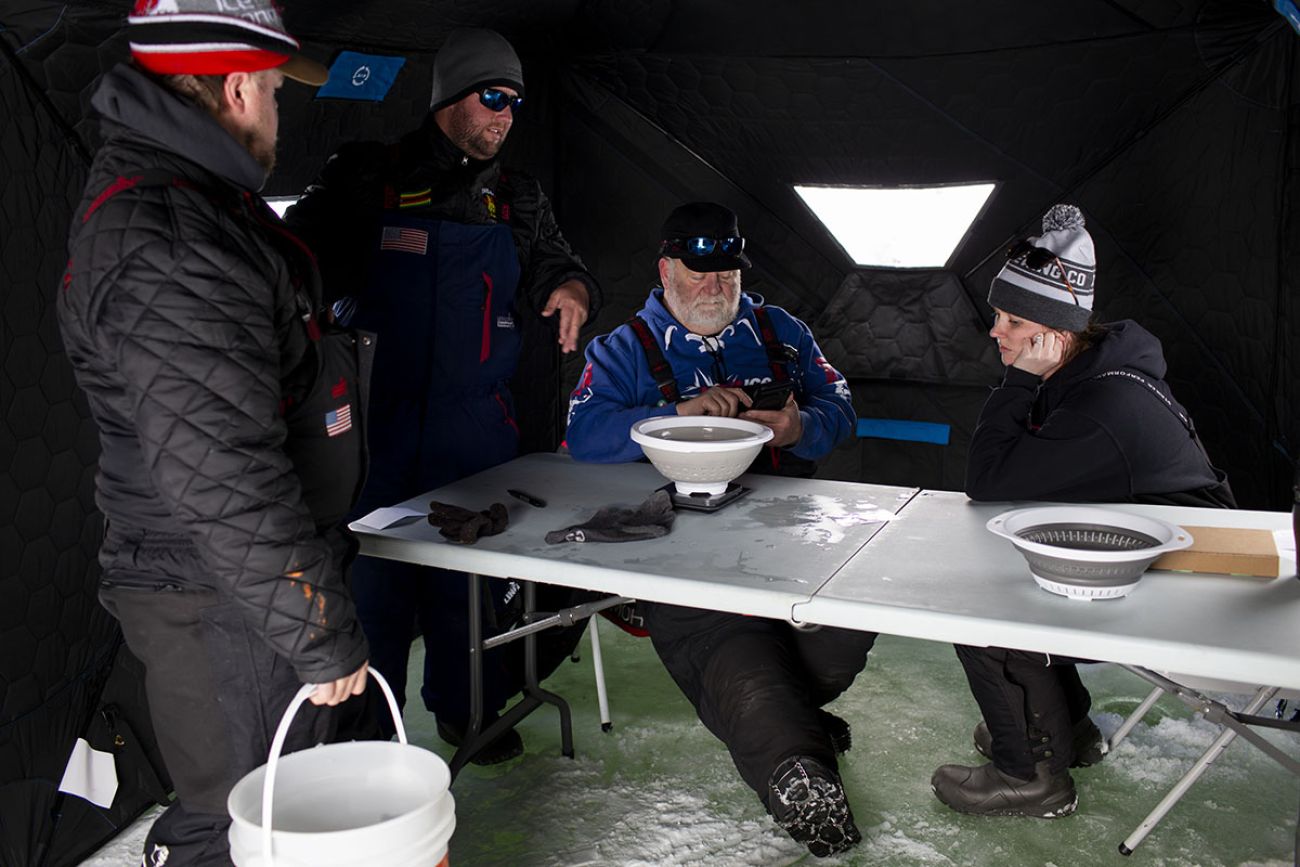
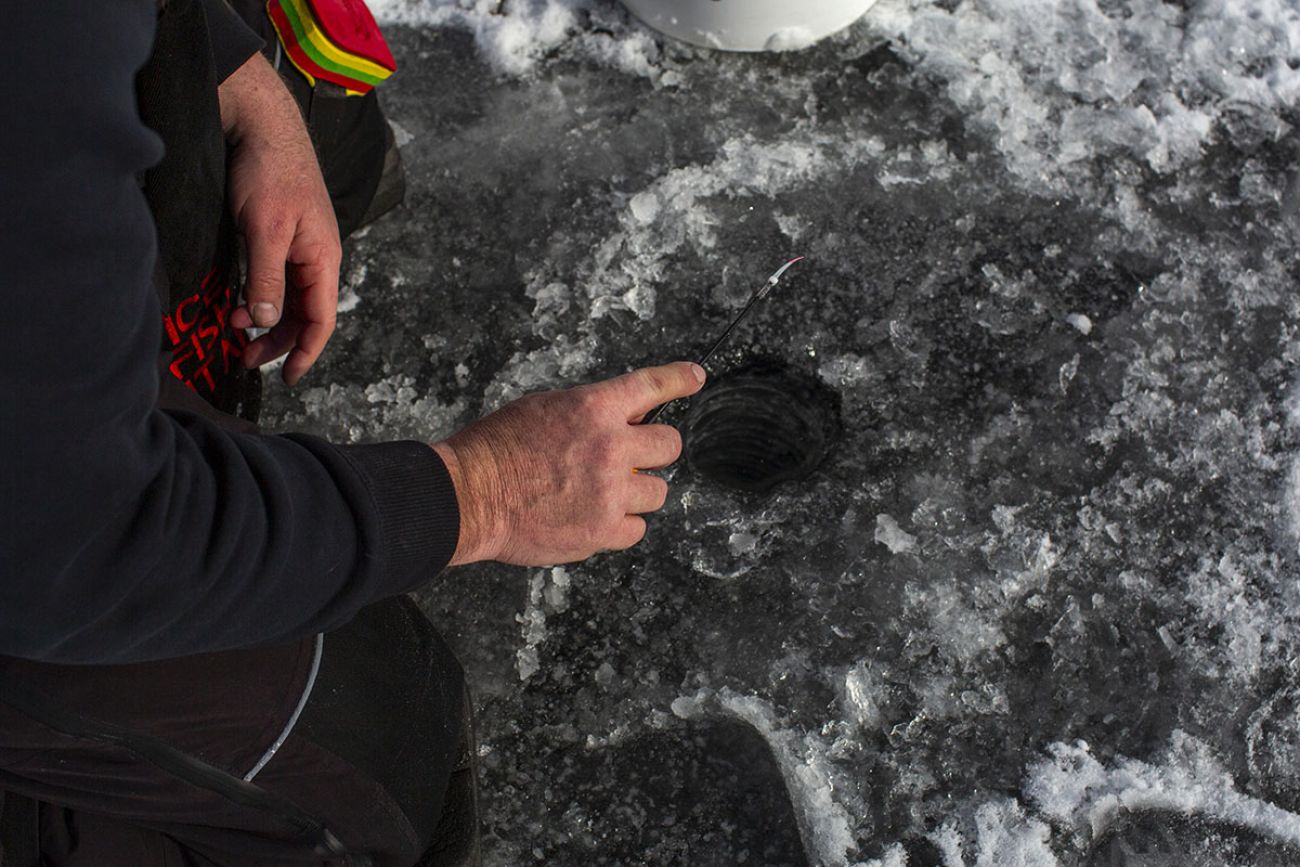
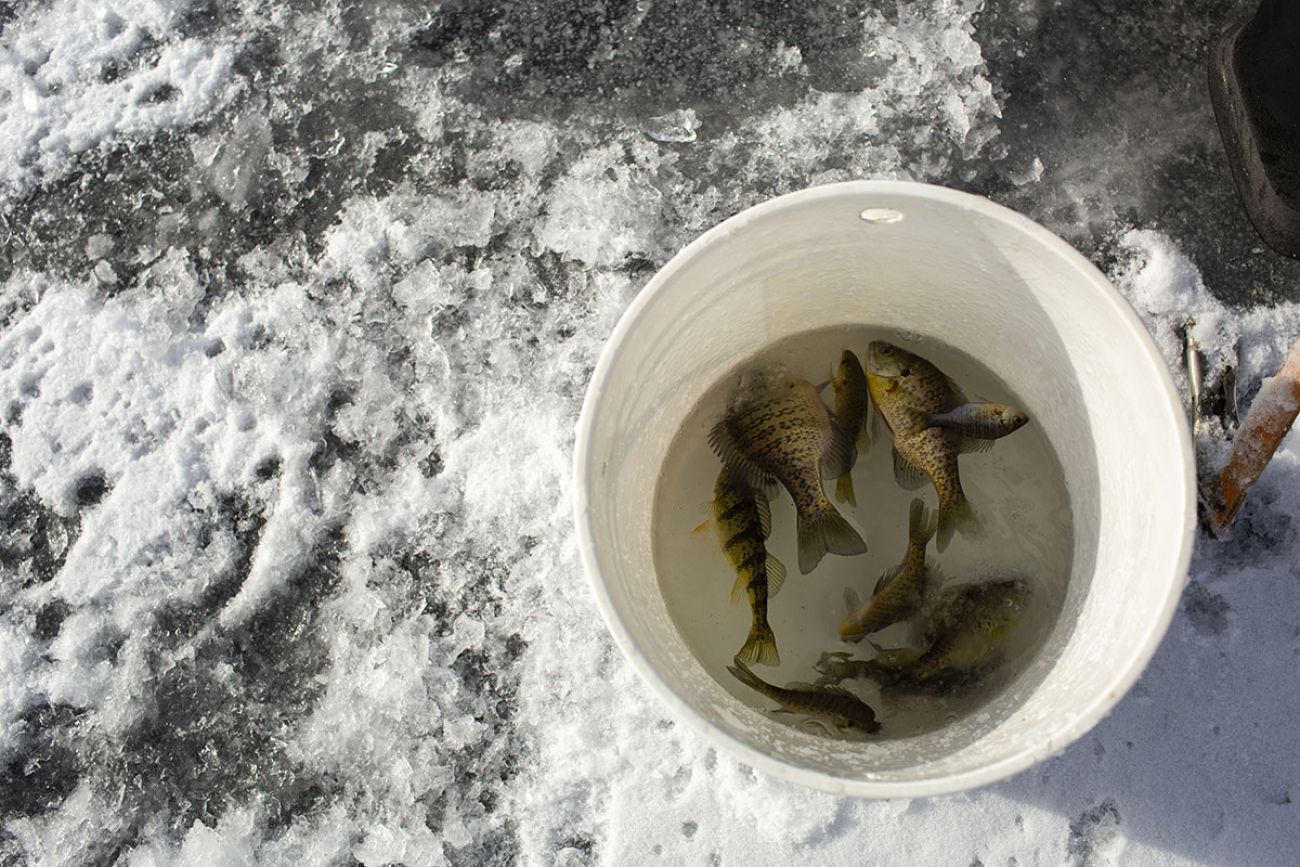
“It’s not our species, it’s a different type of fish,” said Ivo Sööt, competing for Estonia. “So to get to know the fish and understand the behavior, that’s key here.”
As anglers filled the buckets of lake water beside them with fish, volunteers ran the containers into a shanty.
There, the water was strained, the fish were placed on a scale, the weight was recorded and the fish — hopefully still alive — were immediately poured into a hole in the back of the shanty that released them into the lake.
Sometimes, a second bucket of water was needed to get the fish to flush down.
After a couple hours, the top angler, Kevin Kowalski from Team USA, had reeled in 2.996 kilograms or about 6.6 pounds — good enough for bragging rights at practice, but not much else.
Related:
- Free fishing weekend in Michigan, ice climbing and more. Get outdoors!
- Thinking about a cold plunge in Michigan? We have some tips
- Great Lakes continuing to lose ice coverage, experts warn
- Michigan winter: No better time to jump in lakes? Why cold plunges are so hot
During the real deal, Saturday and Sunday from 10 a.m to 2 p.m., spectators can venture out onto the ice on Tamarack Lake, as long as they don’t cross over the fishing area marked off by rope. There will be a beer/wine tent, children’s activities and food trucks (off the ice).
An ‘Olympic’ village?
It may be years — or decades (or never) — before the Olympics bite on ice fishing, but the scene around the Grand Rapids hotel where many teams are staying certainly felt like a miniature Olympic Village.
A group of Kazakhs walked partially in a six-lane roadway, wearing their matching uniforms and holding plastic bags from Meijer.
Before you go
The World Ice Fishing Championship is this weekend on Tamarack Lake in Lakeview. Here’s what you need to know:
- Admission is free.
- Lakeview is a village in Montcalm County about 20 miles north of Greenville off M-91
- The competition kicks off at 2:30 p.m. Friday with a parade of teams carrying their flags at Lakeside Park.
- The championship runs 10 a.m. to 2 p.m. Saturday and Sunday at the lake.
- For directions, use map apps and enter the address: Lakeside Park, 6th St, Lakeview, MI 48850
- The Village of Lakeview is advertising food trucks, a beer/wine tent, fire pits and more
- Spectators are allowed on the ice but not inside the roped-off areas of the competition
- For information, visit the website
In the hotel’s bar, an American tried to explain to an international visitor how Taylor Swift has impacted football.
“They’re all speaking Russian, Kazi and Mongolian and so we’re doing a lot of that — what do you call it? — that Google translation stuff,” said USA Coach Myron Gilbert, who lives in Brooklyn, about 15 miles south of Jackson.
Gilbert, who nabbed the gold medal as a competitor in 2010, said he wants to make sure the international teams feel welcome.
“They’ve been so good to us around the world. We’re trying to reciprocate that here,” Gilbert said.
While there is camaraderie, make no mistake: There is a championship at stake.
The championship
Teams are made up of five anglers plus one alternate. On Saturday and Sunday, a portion of the ice on Tamarack Lake will be divided into five sections.
Each section will contain an angler from each country. They can fish wherever they want within their section, even drilling multiple holes, as long as they’re not within 5 meters of another competitor.
The anglers compete against the people in their section based on the weight of fish they catch. Those who catch the most fish by weight in each section get 1 point; second place gets 2 points, etc.
The goal — like golf — is to score the fewest points.
Last year at the World Ice Fishing Championship in Mongolia, Team USA medaled for the first time abroad. They got silver, losing to Lithuania by 15.5 points.
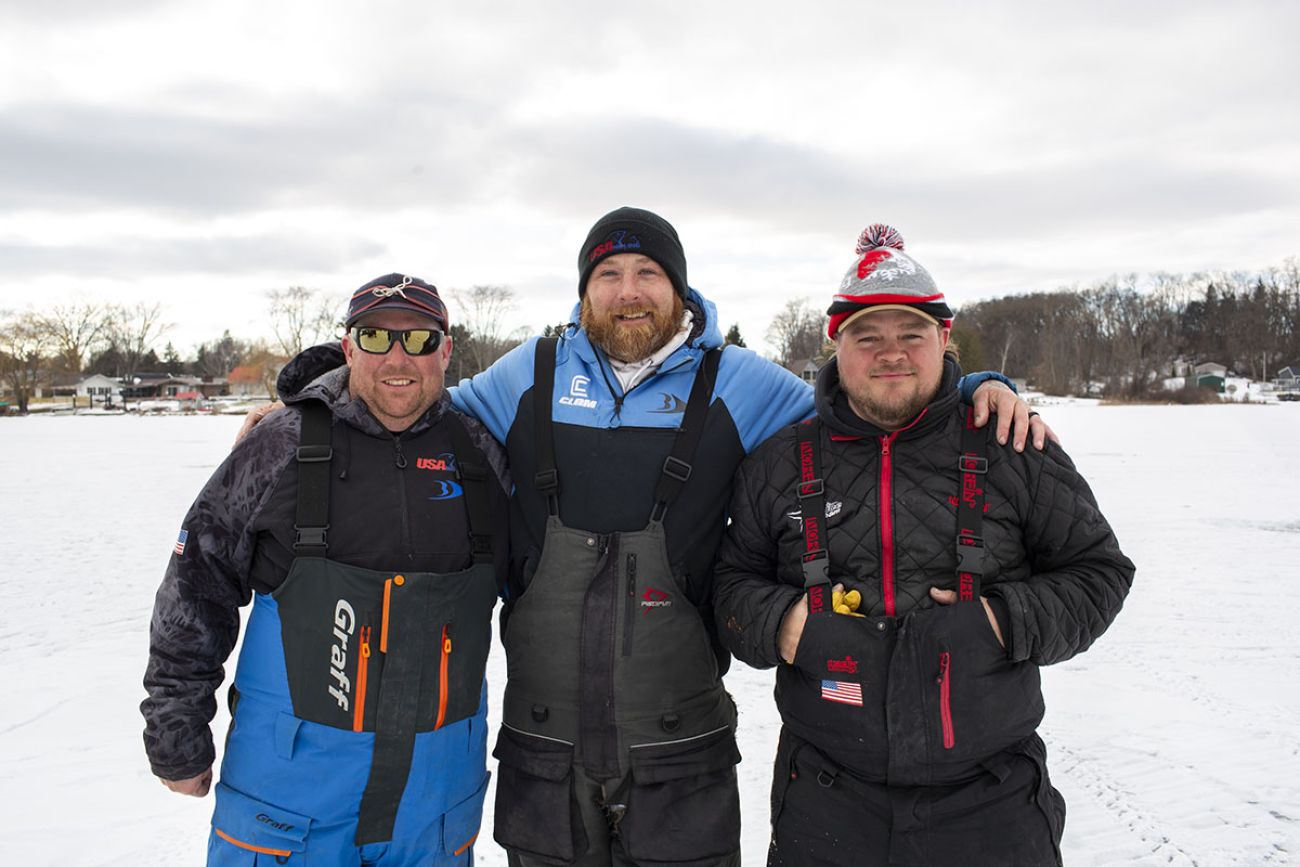
This year, three of six members of Team USA are from Michigan: Keith Kniffen of Eaton Rapids, Chad Schaub of Fountain outside Ludington and Zach George from Hastings, between Lansing and Grand Rapids.
“It’s been (a process) getting this to the United States and in my state of Michigan, too,” said Gilbert, the coach.
“There’s only one way to go, silver to gold.”
But of course the ultimate goal is Olympic gold.
The international fishing confederation also wanted fishing in the 2020 Tokyo Olympics, arguing it is popular worldwide and available to “all regardless of race, social, politics, gender or religion, according to the principles of the Olympic ideal.”
Ultimately, fishing lost out to skateboarding, surfing, karate and others. And even if fishing is accepted, it can take up to seven years to debut in the games, unless it’s a one-off like breakdancing last year.
There’s evidence fishing was featured in the 1900 Olympics in Paris, four years after the first modern games. But it was likely not an official sport, since it took place alongside endeavors such as cannon shooting, life saving and tug of war.
Olympics or not, this weekend’s competition is elite, said George of Team USA.
"These guys are tough. They're the best in the world,” he said.
See what new members are saying about why they donated to Bridge Michigan:
- “In order for this information to be accurate and unbiased it must be underwritten by its readers, not by special interests.” - Larry S.
- “Not many other media sources report on the topics Bridge does.” - Susan B.
- “Your journalism is outstanding and rare these days.” - Mark S.
If you want to ensure the future of nonpartisan, nonprofit Michigan journalism, please become a member today. You, too, will be asked why you donated and maybe we'll feature your quote next time!


